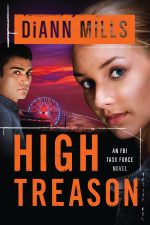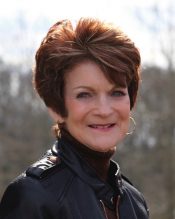By DiAnn Mills
We writers have habits, some quirky, that help us get started on new writing projects. Today I’d like to share with you how I organize my thoughts and preparations before writing chapter one, line one of a new novel. I’m mostly an organic/pantster writer, but some things I have to know before I begin.
- Idea. Oh, these come from so many different places—from a movie, a current happening in the news, overheard conversation, a what-if from everyday life, and dreams.
- Prayer. Not sure about you but if I’m not onboard with God, then my story will fail.
- Premise. This is what guides me to create a story line. For example: What if a young woman chooses death if she learns she can no longer be with her beloved? Or . . . What if a man is framed by a sheriff for a murder he didn’t commit? Or . . . A woman CIA operative is assigned to protecting a Saudi Arabian prince.

- Character. Who is the hero or heroine of the story? Why would working through the premise and storyline (plot) be difficult for him or her? Why would this character be the only person who could walk through this story? What are the character’s weaknesses that make this journey necessary? What motivates my character into action? What happened in the character’s backstory that shaped who this person is in chapter one?
- Characterization sketch. This is a continuance from question number four above. The most important part of any story is the character. A powerful story is one in which the writer knows the character inside and out. We live with the character, breathe, suffer, rejoice, embrace truth, run, and the list goes on. A complete characterization sketch should be completed for every POV character.
- Setting. Where is the best place to set the story? What setting forces my character to change and grow, catch the character unaware, and generally make life miserable.
- Research. This covers a lot of ground from the character’s occupation, the problem or goal, setting, and even dialogue according to the character’s personality and background.
- Summary. I despise writing a synopsis because my story will change in the writing process. But my editors need an idea of where my characters are going and why. Sigh, I do my best.
- Spreadsheet. Yes, writers, I create a spreadsheet that I will use long after the manuscript is turned into my editors. I have columns that read: Chapter, Scene #, short scene summary, blog ideas, contest ideas, Facebook post, Giveaways, Hashtag, Pinterest Board, Speaking Topics, Tweetable, Video, Images/Memes. I only use the first two columns during the writing process, and the others are completed during the final line by line editing to help with promotion efforts.
Once I have these things completed, I’m ready to place my fingers on my computer keyboard and create. What about you? How do you plan your stories? @diannmills #ACFWBlog Share on X
 DiAnn Mills is a bestselling author who believes her readers should expect an adventure. Her titles have appeared on the CBA and ECPA bestseller lists; won two Christy Awards; the Inspirational Readers’ Choice, and Carol award contests. Connect with DiAnn here: www.diannmills.com
DiAnn Mills is a bestselling author who believes her readers should expect an adventure. Her titles have appeared on the CBA and ECPA bestseller lists; won two Christy Awards; the Inspirational Readers’ Choice, and Carol award contests. Connect with DiAnn here: www.diannmills.com

Comments 1
Excellent, DiAnn.
Especially “Not sure about you but if I’m not onboard with God, then my story will fail.” Totally agree. And what’s the point if we’re not onboard with God?
Thank you!